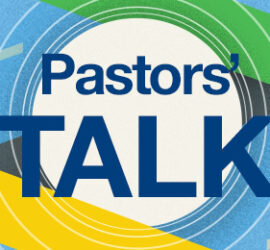A couple of weeks ago, on a weeknight, at about 3:00 in the morning, something happened to the power lines behind our house and our electricity went out. I would not have known until the next morning had my wife not woken me up and told me. Strangely enough, what woke her up was the silence.
As I got up and fumbled around looking for my phone so I could turn on the flashlight app, I too was almost startled by the silence. Not only were the usual noise-makers in our house (appliances, AC unit, etc.) not making their usual racket, but due to the fact that it was the middle of the night, there was practically no sound coming from outside the house either. The sounds of the city would be asleep for at least a few more hours.
After I discerned that the cause of the electrical disruption was not something in my house nor was it something I could address, and after giving the utility company a call, I sat down and just listened for few minutes. The silence was almost startling. It was unsettling. It was almost alien.
I realized in that moment how conditioned I had become come to constant noise. I almost didn’t know how to mentally process the absence of it. Silence forces your mind to fill the void left by incessant sound. It made me realize that noise is a lazy man’s best friend. Instead of having to put our minds to work, too often we put our minds at ease by simply funneling incessant noise into our ears.
As I sat in silence and thought about these things, I realized that there is a spiritual impact to noise. Noise can keep us from focusing on God, from sensing His Spirit, from hearing Him, from hearing others, from discerning nuances, from exercising wisdom, from listening well to others, from thinking for ourselves. On and on I kept thinking. The silence was now allowing my thoughts to grow louder and fuller.
And so Scripture began to come to mind. Scripture that reinforces the need for us to reduce the noise in our lives. Scripture like…
"The LORD will fight for you, and you have only to be silent." Exodus 14:14
"But I have calmed and quieted my soul, like a weaned child with its mother; like a weaned child is my soul within me." Psalm 131:2
"Better is a handful of quietness than two hands full of toil and a striving after wind." Ecclesiastes 4:6
"But the LORD is in his holy temple; let all the earth keep silence before him." Habakkuk 2:20
I then thought of how we are in such a noisy season right now. Modernity has created a cacophony of physical sounds that run throughout the day, but the culture and cultural moment we find ourselves in has also created myriad psychological, intellectual, and emotional noises.
It seems the pandemic has created immunology experts out of nearly everyone and, therefore, everyone feels the need to shout their newly acquired wisdom at everyone else. Social unrest apparently means that nearly everyone has make sure everyone else knows how virtuous they are through tweeting or posting the latest echo-chamber article with, of course, the appropriate virtue-signaling hashtag. And, in the age of noise, to properly debate your political view, including ecclesiastical and theological views, you must debase your political opponent.
Noise. Noise. Noise.
No wonder we feel far from God. We don’t know how to stop the noise: "Be still and know that I am God." Psalm 46:10
Maybe it's time to pursue silence. This can be done literally through a silence and solitude retreat. That is simply scheduling time to get away and spend time alone with God in quietness. Or, maybe, there are more practical ways right in front of us. Like not turning on talk radio, or even music, when we get in the car. Not flipping on our favorite cable news the moment we get home. Not checking social media when we grab our phone. Or, here’s a novel idea, not grabbing the phone at all.
As leaders in God's Church, if we want to have ears to hear what God wants from us, if we are to have ears to hear the true needs of our neighbors, then we must have ears that are not overrun with noise. And things are only going to get noisier in 2020. The enemy will most definitely keep it noisy.
Articles that Caught My Eye
5 Reasons Pastors Don’t Trust Each Other, and 5 Steps We Can Take to Build Trust
Through a Pandemic and Social Unrest
Do Smartphones Make us Dumber?
No One Believes in Social Injustice
1 in 5 churches facing permanent closure within 18 months due to COVID-19 shutdowns
Clarity in an Age of Confusion
Holy Is Who You Are: A Missing Weapon in the War Against Sin
Resource of the Week
Silence can actually be a spiritual discipline. In my mind, the best book on Spiritual Disciplines is Donald Whitney's Spiritual Disciplines for the Christian Life. Chapter 10 of the book teaches on silence and solitude as a spiritual discipline. Now more than ever we need help maintaining the practices that will allow us to walk humbly with our God.



